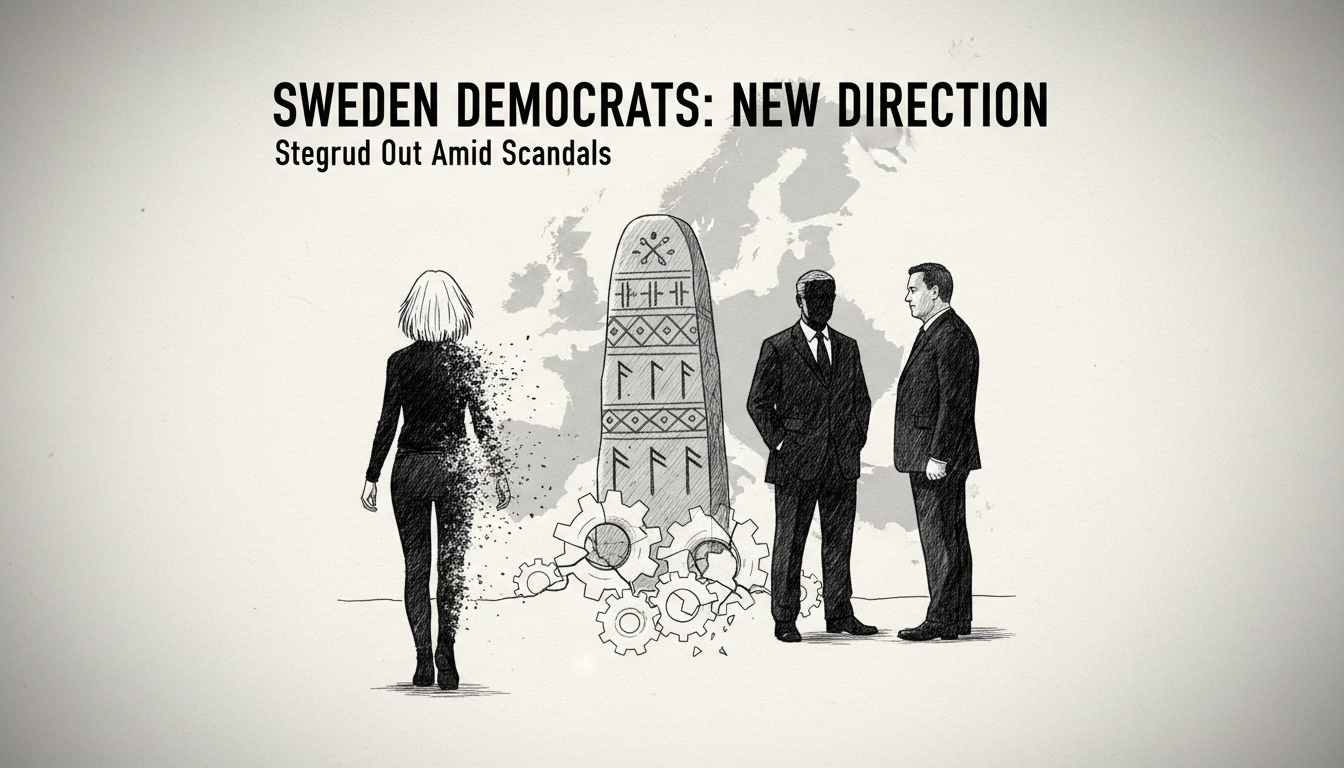Sweden Democrat parliament member Jessica Stegrud faces removal from her party's executive board. The party's nomination committee recommended her dismissal after months of controversy. This marks a significant shift for the nationalist party, which previously defended her through multiple scandals.
Stegrud repeatedly attracted negative attention in recent months. Critics demanded her resignation on several occasions. The Sweden Democrats consistently supported her until now. The nomination committee's decision signals changing internal dynamics.
Swedish political parties maintain strict discipline regarding public image. The Sweden Democrats have worked to moderate their image since entering parliament. Internal power struggles often influence such personnel decisions. The party faces balancing acts between ideological purity and political pragmatism.
This development reflects broader trends in Swedish politics. Mainstream parties increasingly pressure the Sweden Democrats over controversial members. The upcoming European Parliament elections add urgency to maintaining party unity. Internal disagreements about political direction may be influencing this decision.
Nordic political systems emphasize consensus and stability. Sweden's proportional representation allows smaller parties substantial influence. The Sweden Democrats became Sweden's second-largest party in the 2022 elections. Their growing power makes internal discipline increasingly important.
International observers follow Swedish political developments closely. Sweden's NATO membership process highlighted its geopolitical significance. Domestic political stability remains crucial for international partnerships. Party internal decisions can signal broader political directions.
The nomination committee's recommendation requires formal approval. Party boards in Sweden typically follow such recommendations. The Sweden Democrats will likely confirm Stegrud's removal in coming days. This could affect the party's parliamentary work and public perception.
What does this mean for Sweden's political landscape? The Sweden Democrats continue navigating their transition from protest movement to establishment party. Removing controversial figures represents part of this normalization process. Future party decisions will show whether this indicates permanent change.
Swedish politics experts note similar patterns in other Nordic countries. Denmark's Danish People's Party underwent comparable transformations. Finland's Finns Party also moderated its stance to gain broader acceptance. These developments reflect Nordic voters' expectations of political responsibility.
The decision carries implications beyond party politics. Sweden faces important policy decisions regarding immigration, energy, and defense. Stable government coalitions require reliable parliamentary support. Party unity remains essential for effective governance.
Stegrud's potential removal shows the Sweden Democrats prioritizing political survival over individual loyalty. This pragmatic approach may strengthen their government influence. It also demonstrates parties' constant balancing between principles and power in democratic systems.

